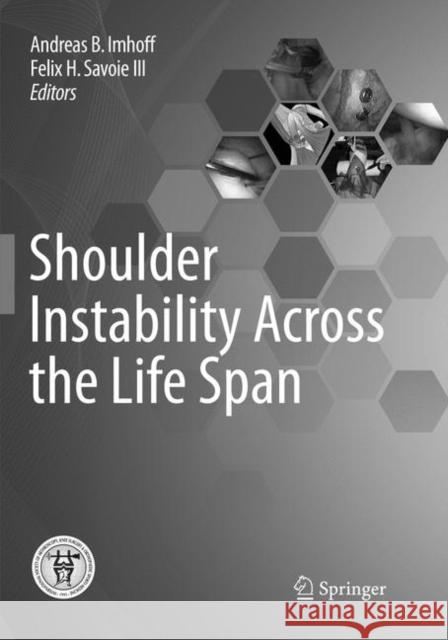Shoulder Instability Across the Life Span » książka



Shoulder Instability Across the Life Span
ISBN-13: 9783662571804 / Angielski / Miękka / 2018 / 307 str.
Shoulder Instability Across the Life Span
ISBN-13: 9783662571804 / Angielski / Miękka / 2018 / 307 str.
(netto: 468,68 VAT: 5%)
Najniższa cena z 30 dni: 462,63
ok. 16-18 dni roboczych.
Darmowa dostawa!
"This book addresses shoulder instability of all types and in all age groups, with a strong surgical emphasis. ... This book is intended for orthopedic surgeons who deal with shoulder instability. It is appropriate for attending (consultant) orthopedists as well as those in training." (Scott Magnes, Doody's Book Reviews, October, 2017)
The Young patient with shoulder instability ( age < 20): Overview of the Spectrum of instability in the very young: Evolving concepts.- Classification of shoulder instability.- Genetics of the unstable shoulder.- Laxity vs MDI/Posterior in the young patient: Scapular dyskinesia.- Management of Acute Shoulder instability. The Young athletic high risk patient with Shoulder Instability (age 18-30): Spectrum of instability in the athletic young adult.- Overview of Evaluation and management of the unstable shoulder with and without bone loss: Definition, measurement, guidelines on treatment.- Arthroscopic soft tissue repair: Bankart + remplissage.- Open stabilization: Bankart repair / capsular shift / interval closure.- HAGL and RAGHL.- Bone Block techniques.- Symptomatic Posterior Instability: Evaluation and management.- Instability in the Middle ages 25-50: Spectrum of instability in the middle age range.- Bankart + RCT.- SLAP.- Biceps injuries: what to do and where.- Subscap tears and instability.- Arthritis. Instability in the “older” patient (Age > 50): Spectrum of instability in the older patient.- Acute RCT as a part of dislocation and acute dislocation superimposed on chronic RCT.- Dislocation arthropathy of the shoulder. Miscellaneous instability topics in the various ages: Combined lesions.- Glenoid fracture.- Locked posterior.- Locked anterior ( chronic).- Brachial plexus injuries and rotator cuff tears with dislocations. Complications: Complication after instability surgery.- Evaluation of failed instability surgery.
This book outlines the consensus findings of the ISAKOS Upper Extremity Committee regarding the treatment options for patients suffering from shoulder instability. The aim is to furnish readers with a precise knowledge of the presenting features of conditions typical of different ages, thereby facilitating assessment of patient characteristics and optimal treatment decision making based on the consensus of the Committee. All age groups are covered, from the very young through to the older patient. The structuring of the book essentially according to age group reflects the fact that certain forms of shoulder instability are observed at different ages. For example, while young patients tend to demonstrate instability combined with hyperlaxity, in later years, bony defects of the glenoid and humerus gain in importance. Similarly, the scope for conservative treatment varies across the life span. Each management-oriented chapter of the book includes information and guidance on anatomy, clinical examination, imaging, surgical indications and technique, rehabilitation, outcomes, and complications and their avoidance, and the text is supported by numerous high-quality illustrations.
1997-2026 DolnySlask.com Agencja Internetowa
KrainaKsiazek.PL - Księgarnia Internetowa









